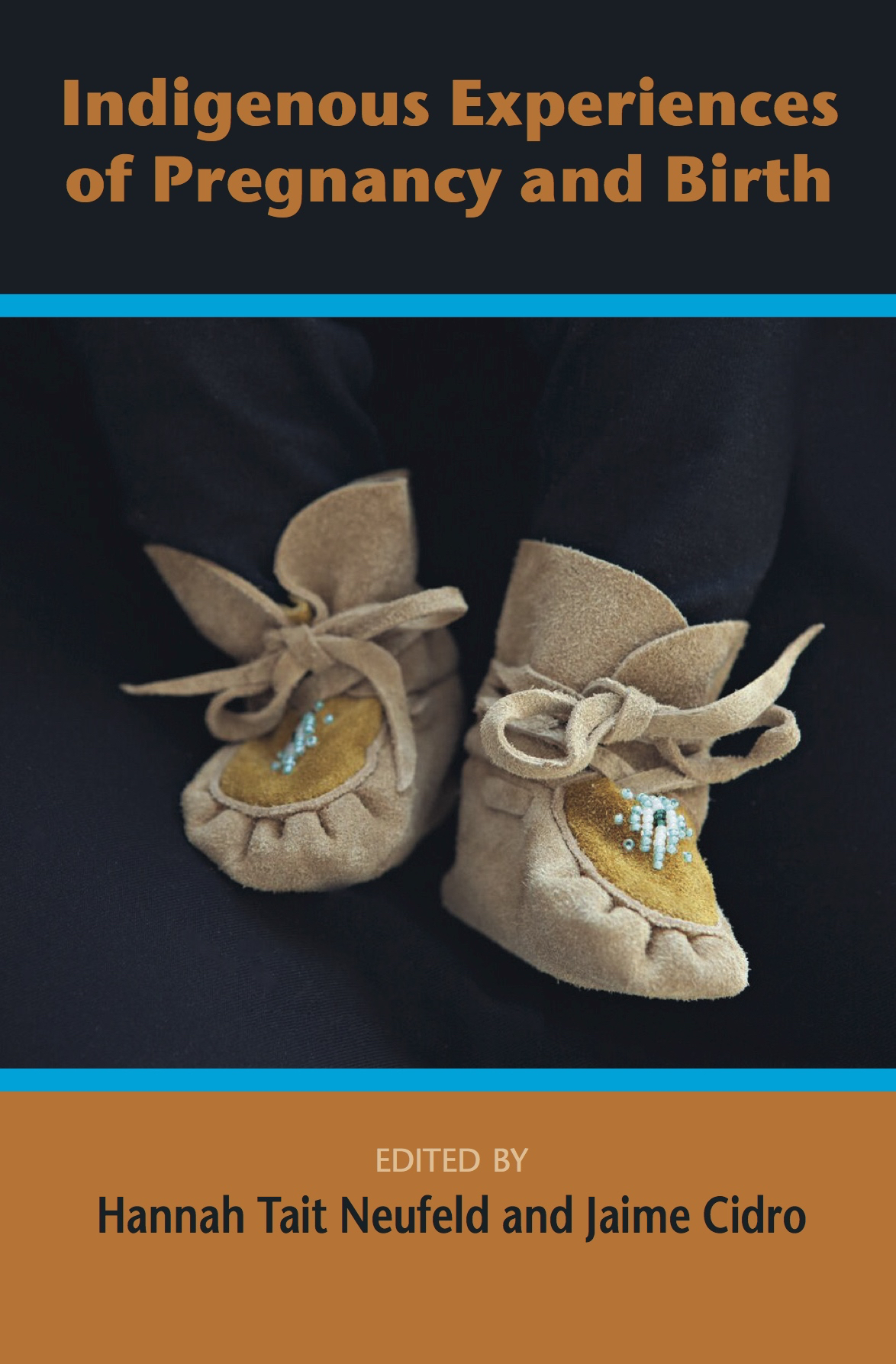
Price: $39.95
Page Count: 208
Publication Date: October 16, 2017
ISBN: 978-1-77258-135-5
This book makes a compelling contribution to the field of Indigenous and maternal
studies. The editors have put together a powerful collection that honours the spirit
of pregnancy and birth, and the strength and resilience of Indigenous women and
families. By acknowledging the ceremony of birth in relation to contemporary
Indigenous issues, such as forced evacuation and water protection, the editors
contextualize the layers of meaning embedded in returning birth to Indigenous
communities. This book serves as an expression of the creative acts of resistance
that have always defined Indigenous motherhood.
—JENNIFER BRANT, Faculty of Education, University of Manitoba, co-editor of
Forever Loved: Exposing the Hidden Crisis of Missing and Murdered Indigenous Women
and Girls in Canada
Acknowledgments
Foreword
Kim Anderson
Introduction
Jaime Cidro and Hannah Tait Neufeld
PART ONE: PREGNANCY
Chapter One
Indigenous Pregnancy, Birthing, and
Mothering in Colonial Canada
Sana Z. Shahram
Chapter Two
“It’s in Her Health”: Historical Retrospective of
Generational Changes in Maternal Diets
from Peguis, First Nation
Hannah Tait Neufeld
Chapter Three
Culture, Identity, and Spirituality in American Indians and
Native People of Alaska Pregnancy Campaigns
Terry L. Rentner, Dinah A. Tetteh, and Lynda Dixon
PART TWO: BIRTH
Chapter Four
Bored, Broke, and Alone:
Experiences of Pregnant and Expectant
First Nations Mothers Birthing in and out of the Community
Jaime Cidro, Elisabeth Dolin, and Christina Queskekapow
Chapter Five
Bearing Witness:
Rural Indigenous Women’s Experiences of Childbirth
in an Urban Hospital
Rachel Olson
Chapter Six
Honouring Our Ancestors:
Reclaiming the Power of Māori Maternities
Naomi Simmonds
Chapter Seven
Revitalizing Traditional Indigenous Birth Knowledge
Rebeka Tabobondung
Chapter Eight
Birth Places, Embodied Spaces:
Tlicho Pregnancy Stories across the Generations
Leslie Dawson
Chapter Nine
Maternal Identity in Family and Community:
Mothers of the Stó:lō First Nation
Margaret MacDonald
Chapter Ten
Indigenous Birth in Canada:
Reconciliation and Reproductive Justice in the Settler State
Erika Finestone and Cynthia Stirbys
About the Contributors
Hannah Tait Neufeld is an Assistant Professor at the University of Guelph in the Department of Family Relations and Applied Nutrition. Her research focuses on Indigenous health inequalities, taking into consideration community interests, along with other environmental factors influencing maternal child health and nutrition.
Jaime Cidro is an Associate Professor at the University of Winnipeg in the Department of Anthropology. She works in the area of Indigenous social determinants of health, Indigenous food, maternal child health and most recently with Indigenous doulas and women who travel for birth.


